BMW iX1 vs Nissan Qashqai – Differences & prices compared
Compare performance, boot space, consumption and price in one view.
Find out now: which car is the better choice for you – BMW iX1 or Nissan Qashqai?
The BMW iX1 (SUV) comes with a Electric engine and Automatic transmission. In comparison, the Nissan Qashqai (SUV) features a Petrol MHEV or Full Hybrid engine with Manuel or Automatic transmission.
When it comes to boot capacity, the BMW iX1 offers 490 L, while the Nissan Qashqai provides 504 L – depending on how much space you need. If you’re looking for more power, decide whether the 313 HP of the BMW iX1 or the 190 HP of the Nissan Qashqai suits your needs better.
In terms of consumption, the values are 15.80 kWh per 100 km for the BMW iX1, and 5.10 L for the Nissan Qashqai.
Price-wise, the BMW iX1 starts at 41800 £, while the Nissan Qashqai is available from 29400 £. Compare all the details and find out which model fits your lifestyle best!
BMW iX1
The BMW iX1 stands out as a versatile addition to the electric vehicle market, seamlessly combining compact dimensions with advanced electric technology. Its sophisticated design elements and premium interiors ensure a luxurious driving experience, while the vehicle's performance focuses on delivering both efficiency and agility. With enhanced connectivity features and an emphasis on sustainability, this model represents a significant step forward in BMW's commitment to a greener future.
details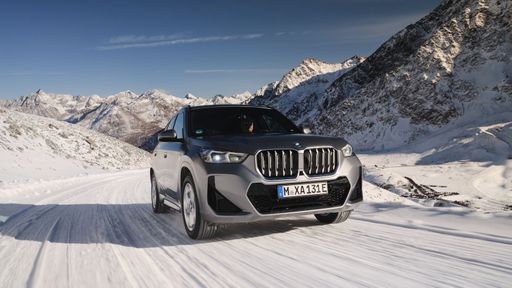 @ press.bmwgroup.com
@ press.bmwgroup.com
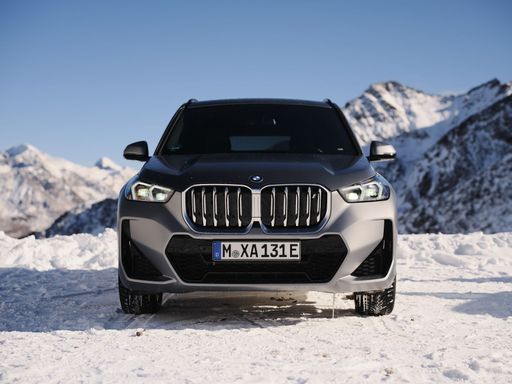 @ press.bmwgroup.com
@ press.bmwgroup.com
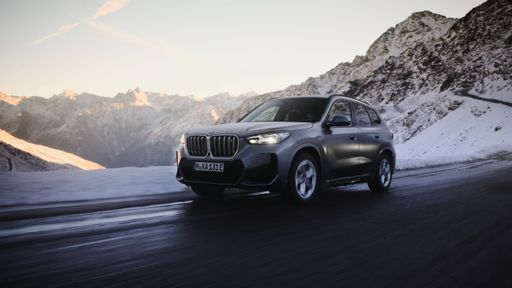 @ press.bmwgroup.com
@ press.bmwgroup.com
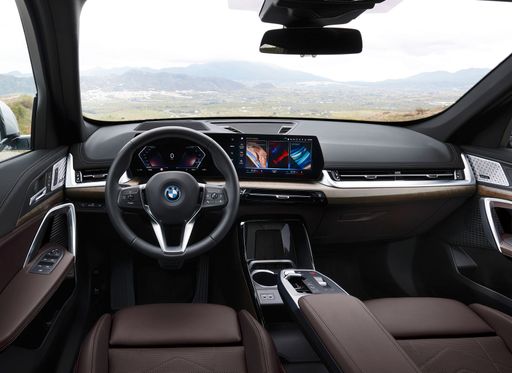 @ press.bmwgroup.com
@ press.bmwgroup.com
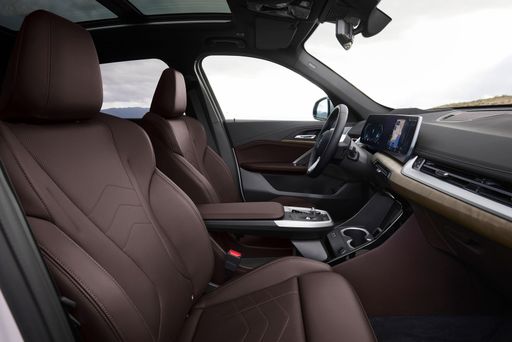 @ press.bmwgroup.com
@ press.bmwgroup.com
Nissan Qashqai
The Nissan Qashqai stands out in the compact SUV market with its sleek design and versatile features. Its smooth ride and refined interior make it a popular choice for both city driving and weekend adventures. Advanced safety technologies and user-friendly infotainment add to its appeal, ensuring a comfortable and secure driving experience for all passengers.
details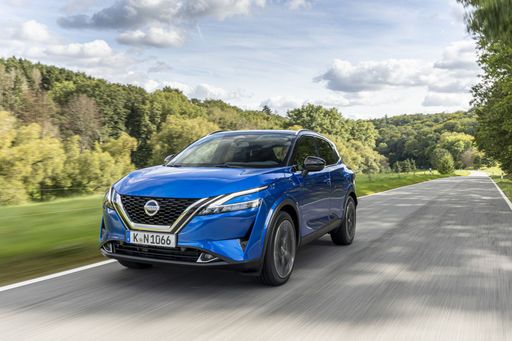 @ Nissan
@ Nissan
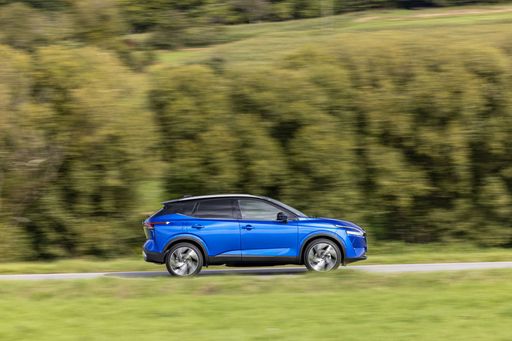 @ Nissan
@ Nissan
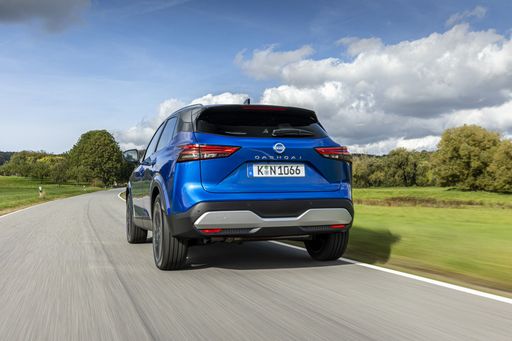 @ Nissan
@ Nissan
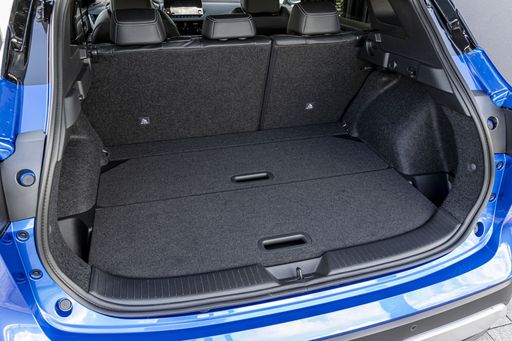 @ Nissan
@ Nissan
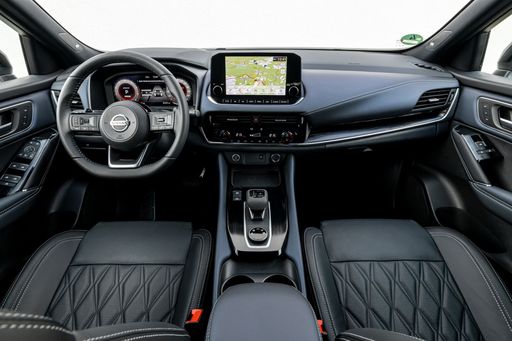 @ Nissan
@ Nissan

|

|
|
|
|
Costs and Consumption |
|
|---|---|
|
Price
41800 - 54600 £
|
Price
29400 - 42500 £
|
|
Consumption L/100km
-
|
Consumption L/100km
5.1 - 6.8 L
|
|
Consumption kWh/100km
15.8 - 17.1 kWh
|
Consumption kWh/100km
-
|
|
Electric Range
436 - 463 km
|
Electric Range
-
|
|
Battery Capacity
64.80 kWh
|
Battery Capacity
-
|
|
co2
0 g/km
|
co2
116 - 154 g/km
|
|
Fuel tank capacity
-
|
Fuel tank capacity
55 L
|
Dimensions and Body |
|
|---|---|
|
Body Type
SUV
|
Body Type
SUV
|
|
Seats
5
|
Seats
5
|
|
Doors
5
|
Doors
5
|
|
Curb weight
1940 - 2085 kg
|
Curb weight
1420 - 1665 kg
|
|
Trunk capacity
490 L
|
Trunk capacity
479 - 504 L
|
|
Length
4500 mm
|
Length
4425 mm
|
|
Width
1845 mm
|
Width
1835 mm
|
|
Height
1616 mm
|
Height
1625 mm
|
|
Payload
495 kg
|
Payload
466 - 520 kg
|
Engine and Performance |
|
|---|---|
|
Engine Type
Electric
|
Engine Type
Petrol MHEV, Full Hybrid
|
|
Transmission
Automatic
|
Transmission
Manuel, Automatic
|
|
Transmission Detail
Reduction Gearbox
|
Transmission Detail
Manual Gearbox
|
|
Drive Type
Front-Wheel Drive, All-Wheel Drive
|
Drive Type
Front-Wheel Drive, All-Wheel Drive
|
|
Power HP
204 - 313 HP
|
Power HP
140 - 190 HP
|
|
Acceleration 0-100km/h
5.6 - 8.6 s
|
Acceleration 0-100km/h
7.9 - 10.2 s
|
|
Max Speed
170 - 180 km/h
|
Max Speed
170 - 206 km/h
|
|
Torque
250 - 494 Nm
|
Torque
240 - 330 Nm
|
|
Number of Cylinders
-
|
Number of Cylinders
3 - 4
|
|
Power kW
150 - 230 kW
|
Power kW
103 - 140 kW
|
|
Engine capacity
-
|
Engine capacity
1332 - 1497 cm3
|
General |
|
|---|---|
|
Model Year
2022 - 2023
|
Model Year
2024
|
|
CO2 Efficiency Class
A
|
CO2 Efficiency Class
E, D
|
|
Brand
BMW
|
Brand
Nissan
|
BMW iX1
A New Era of Innovation: Meet the BMW iX1
The automotive world has seen a seismic shift towards sustainability and electrification, and BMW has solidified its place in this evolution with the introduction of the BMW iX1. As a fully electric SUV, the iX1 serves as a testament to how luxury, performance, and eco-consciousness can harmoniously blend in the modern automotive landscape.
Exquisite Design Meets Purposeful Engineering
The BMW iX1 is not just an electric vehicle; it's an embodiment of cutting-edge design and technology. With its bold SUV silhouette, the iX1 boasts dimensions of 4500 mm in length, 1845 mm in width, and 1616 mm in height, providing a spacious yet agile presence on the road. Its dynamic aesthetic is complemented by an aerodynamic form that enhances efficiency, offering a drag coefficient that rivals traditional SUV models.
Powertrain and Performance Specifications
Beneath the hood of the BMW iX1 lays an electric motor that signifies the future of automotive engineering. Available variants offer power outputs ranging from 204 to 313 PS (150 to 230 kW). The iX1 comes with either a front-wheel or all-wheel drivetrain, catering to different driving preferences. The xDrive30 variant, in particular, features all-wheel drive, delivering up to 313 PS for those who crave enhanced traction and control.
With a commendable electric consumption of 15.8 to 17.1 kWh per 100 km, the iX1 strikes a fine balance between power and efficiency. Its acceleration stats are equally impressive, with the ability to go from 0-100 km/h in as little as 5.6 seconds. This ensures that while it's eco-friendly, it does not compromise on the exhilaration factor. The vehicle can reach a top speed range between 170 and 180 km/h.
A Journey Without Interruptions: Range and Battery Life
The iX1's battery, boasting a capacity of 64.8 kWh, provides a substantial driving range of 436 to 463 km on a single charge, depending on the variant. This means long road trips are not only feasible but enjoyable, eliminating the range anxiety often associated with electric vehicles.
Comfort and Technological Interior
Inside, the iX1 exemplifies BMW’s commitment to luxury and innovation. It’s a five-seater SUV designed with comfort at its forefront, featuring advanced technological interfaces that enrich the driving experience. The spacious cabin offers 490 litres of boot space, ensuring practicality without sacrificing style.
In terms of monthly costs, owning an iX1 can range between €1,147 and €1,453, considering the zero-emission appeal with a CO2 efficiency class of A.
The Financial Aspect of Sustainability
With a price range from €48,400 to €63,140, the BMW iX1 isn't just a vehicle—it's an investment in sustainable motoring. Factoring in a cost of around 45.9 to 58.1 cents per kilometre, the iX1 offers an economically viable option for the eco-conscious driver.
Conclusion: The Future Is Now
The BMW iX1 stands as a beacon of what the future holds for zero-emission vehicles. With a melding of sustainability, performance, and luxury, it's not just a car, but a glimpse into the next chapter of automotive history.
Nissan Qashqai
Exploring the New Nissan Qashqai: A Masterclass in Innovation and Performance
The Nissan Qashqai stands as a testament to the brand's continuous evolution in the competitive SUV market. Building on its robust reputation, the latest models bring a blend of style, efficiency, and groundbreaking technology that cater to the modern driver's needs. As we delve into the technical nuances and innovative features, it becomes evident why the Qashqai remains a top contender in its segment.
Powertrain and Efficiency: A Harmonious Balance
The latest Nissan Qashqai models feature an advanced range of powertrain options, including both mild-hybrid and full-hybrid systems. The 1.3 DIG-T MHEV engines provide power outputs ranging from 140 to 158 PS, ensuring a responsive driving experience while maintaining a remarkable fuel efficiency of 6.3 L/100km for automatic front-wheel drive versions. The full-hybrid 1.5 VC-T e-POWER delivers an impressive 190 PS while achieving a fuel efficiency of just 5.1 L/100km, demonstrating Nissan's commitment to ecological innovation.
Advanced Transmission Systems
Drivers can choose between manual or automatic transmissions, tailored to their driving style. The manual gearbox offers a tactile driving experience, while the automatic options, including a CVT and reduction gear transmission, ensure seamless power delivery and heightened efficiency. For those who seek greater traction and stability, all-wheel drive configurations are also available, enhancing the Qashqai's versatility.
High-Tech Interior: Comfort Meets Connectivity
The Qashqai's interior is a sanctuary of technology and comfort. The SUV features a user-friendly infotainment system with a touchscreen interface, compatible with both Android Auto and Apple CarPlay. The seamless integration of technology extends to advanced driver-assistance systems (ADAS) that include ProPILOT with Navi-link, enhancing convenience and safety during long drives or urban manoeuvres.
Performance and Dynamics: The Driving Experience
When it comes to performance, the Qashqai does not compromise. With acceleration from 0-100 km/h in as little as 7.9 seconds in the more powerful hybrid editions, and a top speed ranging from 170 to 206 km/h, Nissan ensures that excitement is part and parcel of the Qashqai driving experience. This balance of power and control is complemented by a well-tuned suspension system and precise steering response, providing a confident drive whether on highways or country lanes.
Design and Practicality: Where Form Meets Function
Sporting an aerodynamic silhouette, the Qashqai exudes a modern vibe that is both eye-catching and functional. Its dimensions, with a length of 4425 mm and a width of 1835 mm, provide ample cabin space for five passengers, along with a versatile boot capacity of up to 504 litres. These aspects make it an ideal choice for families and adventurers alike.
Conclusion: A Forward-Thinking Choice
The Nissan Qashqai remains a steadfast choice for those seeking an SUV that blends innovative technology with everyday practicality. With its advanced hybrid options and cutting-edge features, it not only meets but often exceeds the demands of today's environmentally conscious and tech-savvy drivers. As Nissan continues to push boundaries, the Qashqai stands as a beacon of what modern SUVs can achieve.
Which drive types are available for the BMW iX1?
Available as Front-Wheel Drive or All-Wheel Drive.
The prices and data displayed are estimates based on German list prices and may vary by country. This information is not legally binding.
